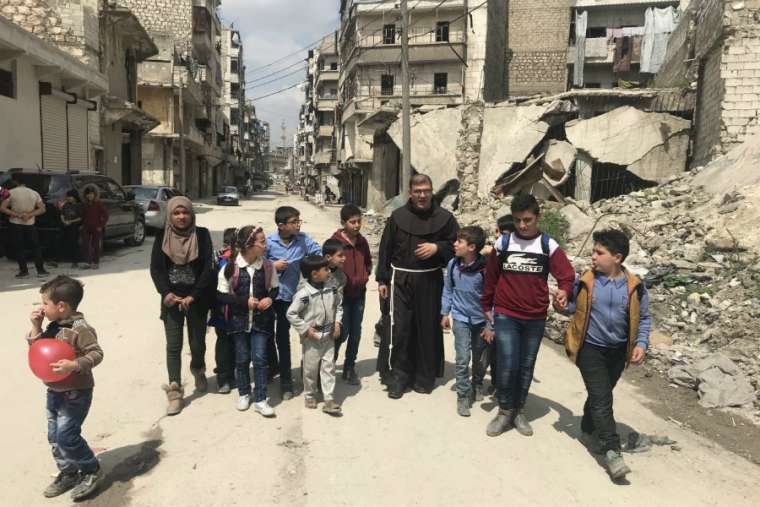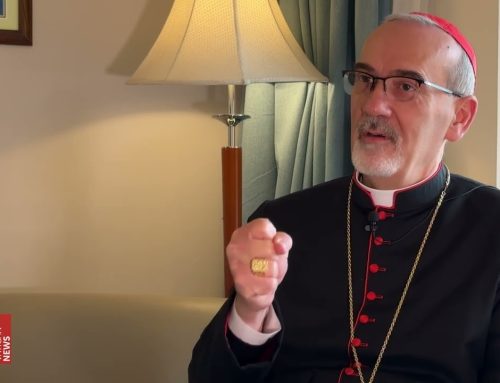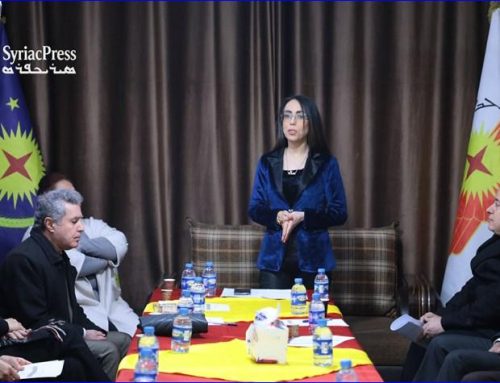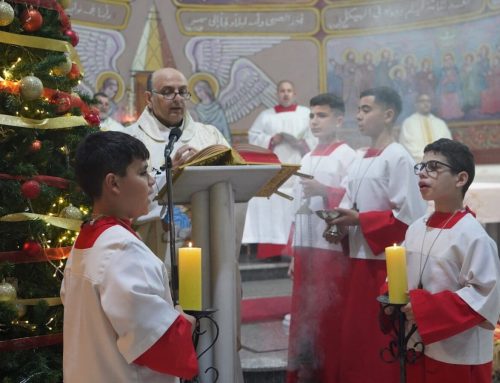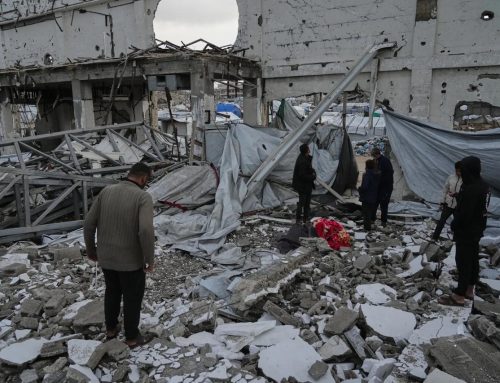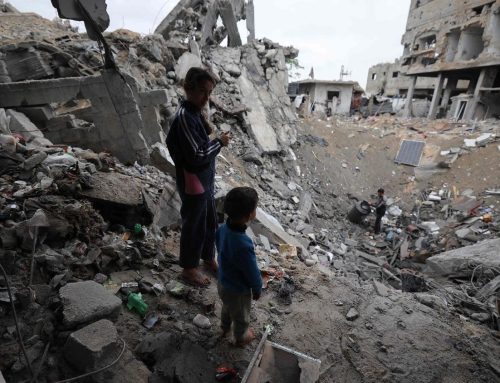“I saw with my eyes, and I touched the suffering of the children living in the ruins, not in a home, because everything is destroyed,” Fr. Lufti told CNA March 5.
The Franciscan sought to create a place of safety and healing for these kids, many of whom were suffering from anxiety, depression, and post-traumatic stress.
“We observed that the children, the Aleppian children, had many trauma, post-war. Lots of them lost parents, some of them had mutilation, losing hands or legs, and they are afraid of everything,” the priest said.
Lufti founded the Franciscan Care Center’s post-traumatic war treatment program in Aleppo in 2017. Since then, its staff of clinical psychologists, volunteers, and social workers have served 1,500 Syrian children aged 6-17 years old.
In addition to psychological treatment, the center provides art therapy and recreational activities with painting, sculpture, music, theater, dance, basketball, and swimming. It also has a training course for parents focused on how to best care for and support their child’s mental health during treatment.
Since the onset of the Syrian civil war in March 2011, some 500,000 people have been killed. In the eighth year of the conflict, 5.6 million refugees have fled the country and 6.1 million more have been internally displaced, according to the UN.
Fighting in Syria’s Idlib province, to the west of Aleppo province, has displaced nearly 1 million people from their homes since December 2019. Turkish-backed rebels have been opposing the Russian-backed Syrian government’s offensive in the province, which isSyria’s last rebel-held territory. A cease-fire in the province signed by the leaders of Russia and Turkey went into effect March 6.
Fr. Lufti, who is currently based in Lebanon after spending 12 years in Syria, said that the Franciscan Custody of the Holy Land currently has two friars stationed in Idlib province: “This is another chapter for us because we have two Franciscan friars still living there in that dramatic area … They are living and taking care of the small Christian community, about 300 families, and they take care also of lots of Muslims who escaped from bombarding,” Lufti said.
“They are our heroes as the Franciscans who are living in the worst situation and dramatic situation in Syria,” he said.
Many children born in Syria amid the bombings and chaos of the war never received a birth certificate because their birth was not registered with the government.
To give these forgotten children an identity, the Franciscans began the “Name and Future” project in Eastern Aleppo.
“We take care of these children, and we gave them an official registration … We have in each center 500 children,” Lufti said.
Among those cared for by the Franciscans in the centers in Aleppo are abandoned young people with Down syndrome and autism, as well as pregnant mothers in need of assistance.
“We are worried about the continuation of this project because as you know the situation, the economical situation in Syria is very bad,” Lufti said.
The Franciscan Care Center in Aleppo is one of the projects funded by the Catholic Church’s Good Friday Collection this year.
The Good Friday Collection to be taken in churches throughout the world April 10 will benefit Catholic holy sites and ministries in the Holy Land, as well as in Syria, Lebanon, Iraq, and other countries in the region.
Most of the collection is administered by the Franciscan Custody of the Holy Land, which is among the oldest and largest Catholic institutions in the Holy Land. The province was founded by St. Francis of Assisi in 1217, just eight years after he founded the Franciscan order.
The Congregation for Eastern Churches also uses a percentage of the Good Friday Collection to support the formation of candidates for the priesthood in the Middle East.
“You know well what severe trials the Church in the Holy Land and throughout the Middle East has endured over the centuries,” Cardinal Leonardo Sandri, prefect of the Congregation for Eastern Churches, said in his appeal for the Good Friday Collection this year.
“Long and exhausting wars continue to produce millions of refugees and strongly influence the future of entire generations. They see themselves deprived of the most basic goods such as the right to a peaceful childhood, to a harmonious school education, to dedicating one’s youth to looking for a job and forming a family, to discovering one’s vocation, to an industrious and dignified adult life, and to a peaceful old age,” he said.
“The Church continues to work to safeguard the Christian presence and to give voice to the voiceless,” the cardinal said.
By Courtney Mares
Source: www.catholicnewsagency.com

